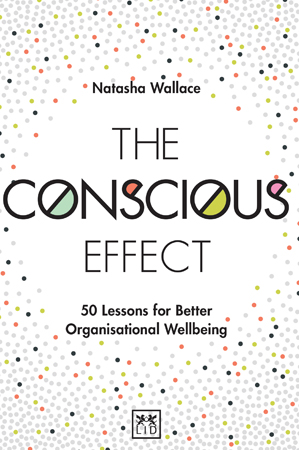One-sentence summary: If we are more consciously aware of who we are, and how to take better care of our needs then we will take better care of our (and others’) wellbeing.
Who is this book for? This would be a good book for new/inexperienced leaders and – given that there are 50 individual lessons – it is the kind of thing that could be worked through at one lesson each week.
Some take-aways from the book:
1 – Together: Leaders need to remember to work in partnership with their team, and create a climate of psychological safety and trust, as the highest performing teams are the ones that can make mistakes. Leaders can help to build the right climate by removing blame, seeing mistakes as learning, and owning up to their own mistakes. Don’t forget that there are lots of things that leaders need to pay attention to (e.g. avoiding micromanagement, encouraging diversity and inclusion, providing flexibility, and the right physical space).
2 – Resilient: Carefully choose your frames (your perspective) and stop trying to be a superhero. Remember that good enough is good enough (and be careful of perfectionism and imposter syndrome). And – particularly important – resilience isn’t always about putting up with the challenges that work presents, and sometimes you need to know when to quit.
3 – Awake: Make sure you self-reflect and be aware of your blindspots, your biases, your triggers, and the patterns that you repeat. Never normalise bad behaviour, and don’t believe your own hype (i.e. stay humble).
4 – Growing: We need to maintain a growth mindset for the organisation, and maintain a culture that encourages growth. There is a lot to be gained from focusing on what is innately right/strengths (something I obviously agree with!) and performance discussions should be conversations rather than appraisals. We sometimes assume that learning is
about learning new stuff, but it isn’t, and we often need to unlearn or relearn things.
5 – Purposeful: Remember to focus on meaning, long-term aims, and values. Not just goals.
What did I think of the book? This is a book that covers a broad range of subject areas (about how to be a human and how to be a leader) so it can’t go into depth on all those topics and you’ll need to follow the references and use additional resources if you want to dig deep into a topic. I liked the way each of the five sections starts with a ‘big conscious question’, has the individual lessons relating to that section, then works through case studies before closing with ‘a little recap’. The case studies are helpful and accessible in that they are not the usual suspects; some of the case studies are deliberately imperfect (the organisation is seeing some progress but still working on it) and felt much more accessible than case studies of organisations that have achieved a nirvana-like state.
Ian Pettigrew, Kingfisher Coaching






